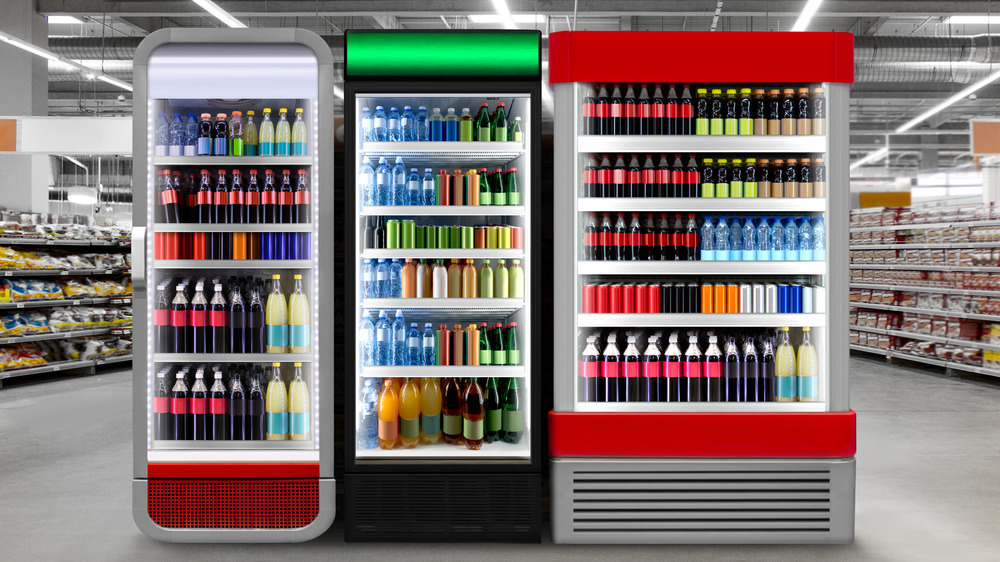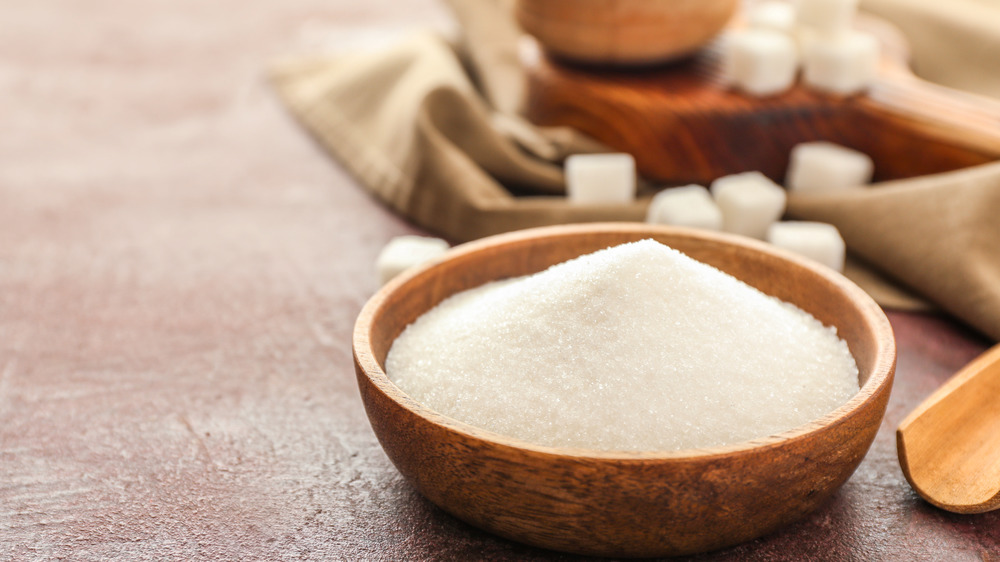The Real Reason You Might Want To Avoid Energy Drinks
Energy drinks contain caffeine, different amounts depending on the brand, and they'll definitely give you a boost of energy. Unfortunately, they can also negatively affect your heart, according to a new study to be published in March 2021 in Food and Chemical Toxicology.
Researchers studied the health effects of 17 energy drink brands readily available in stores and their most common ingredients — caffeine, adenine, riboflavin, taurine, L-methionine, and pantothenic acid. The researchers used cardiomyocytes (samples of heart cells) and applied each of the 17 drinks to samples and observed how the cells responded. You'd think caffeine in energy drinks would cause the most problems, right? Surprisingly, that wasn't the main problem; it was actually three other ingredients that adversely affected the cardiomyocytes by increasing beat rate, among other negative effects on heart function — azelate, theophylline, and adenine.
Another issue? Many of the ingredients were hard to identify. In general, it's hard to know exactly what's in an energy drink, and how much of each ingredient it contains since energy drinks aren't regulated. Energy drink makers can list "proprietary blend" in the ingredients list without being upfront about the actual ingredients in that blend.
In addition to these ingredient issues and risk factors, there are many other health risks associated with energy drink consumption.
Some energy drinks are loaded with sugar
Unless you opt for a sugar-free energy drink, they usually have a lot of sugar, which you probably know isn't good for your health. The U.S. Dietary Guidelines for Americans recommends limiting your sugar intake to 10 percent of your daily calorie consumption. So, if you have 2,000 calories a day, you need to limit your sugar intake to 50 grams of sugar, equal to about 12 and a half teaspoons of sugar.
In contrast, drinking two 8.4-ounce cans of Red Bull or one 16-ounce can of Monster will go over your daily sugar limit. The smaller Red Bull can has about seven teaspoons of sugar, and the larger can of Monster has about 14 teaspoons of sugar (via Healthline).
Eating or drinking too much sugar can have a variety of ill health effects — weight gain, acne, aging skin, fatty liver, poor dental health, poor memory, as well as an increased risk of depression, dementia, gout, heart disease, diabetes, kidney disease, and cancer (via Healthline).
Don't mix energy drinks with alcohol
Another alarming issue is the combo of booze and energy drinks. About 25 percent of college-aged young adults mix energy drinks with alcohol, according to the National Center for Complementary and Integrative Health (NCCIH). Those young adults who mix energy drinks with alcohol tend to binge drink more than people who don't mix them.
The Centers for Disease Control and Prevention (CDC) backs this up by stating that adolescents and young adults ages 15 to 23 who mix alcohol and energy drinks binge drink far more than those who don't.
Why are people drinking more when they mix alcohol with energy drinks? Caffeine is the problem in this case because it masks the effects of alcohol. After a few drinks, you might feel fine, like you had far less alcohol, which can cause you to drink even more. You're not getting less drunk; you just don't realize how drunk you actually are because of the caffeine. Before you know it, you're waking up in the morning with a staggering hangover, if you're lucky.
Bottom line on energy drinks? There are many other healthier options when it comes to beverages. Try swapping your energy drink for iced tea, soda (in moderation), or iced coffee. You'll cut down on calories, caffeine, sugar and the temptation to mix energy drinks with other substances — and you'll lower your risk of heart problems, too.



